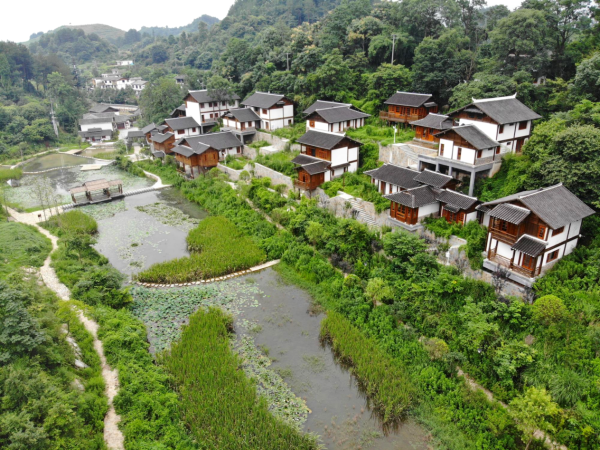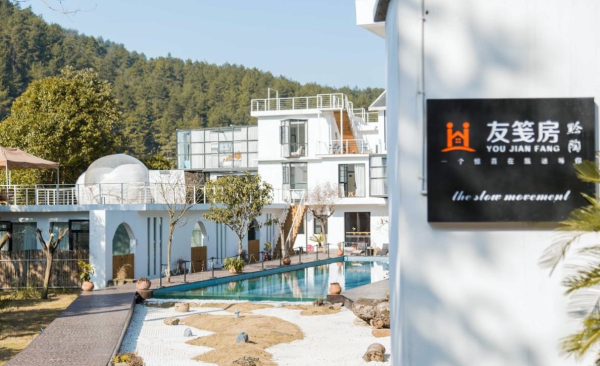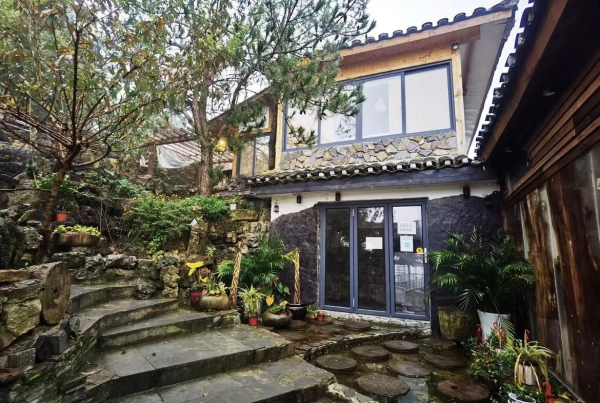Homestay promotes rural vitalization in Huaxi

A rural homestay complex between a mountain and a stream in Wangmiao village, Huaxi district [Photo/huaxi.gov.cn]
Huaxi district in Guiyang, capital of Southwest China's Guizhou province, has boosted rural vitalization with its homestay industry in recent years.
There are 170 homestay operators in the district, offering more than 1,000 rooms of various types for tourists.
The boom in the rural homestay industry would not have been possible without Huaxi's efforts to utilize its idle farm houses, introduce private capital, develop diverse products, and beautify its rural environment.

A rural homestay complex in Qiaotao township of Huaxi district [Photo/huaxi.gov.cn]
The homestay industry's profits and dividends have allowed more local farmers to receive economic subsidies and stable incomes.
Youjianfang, located in Laobanghe of Qiantao township, has renovated idle factory buildings in the village and attracted more than 3,000 tourists from 18 provinces and municipalities since its opening in September 2020. It has also signed a land subsidy agreement with local farmers, and paid fees every two years for farmers to continue to grow crops and maintain the surrounding landscapes of homestay buildings.

A rural inn in Gaopo township, Huaxi district [Photo/huaxi.gov.cn]
The development of the homestay industry has promoted the employment of locals, with more villagers finding jobs and mastering new vocational skills in their hometown.
Another rural homestay facility called Qiyu Xiaobaituo in Wangmiao village has employed local villagers as housekeepers and temporary workers responsible for housekeeping, cooking, tourist activities and tourism consultations.
In the future, Huaxi will further explore local ecological and cultural resources to better meet the various consumption needs of tourists, allow farmers to share in more industrial value-added benefits, and inject new vitality into rural vitalization.
Presented by China Daily.
黔ICP备05001922号-3
